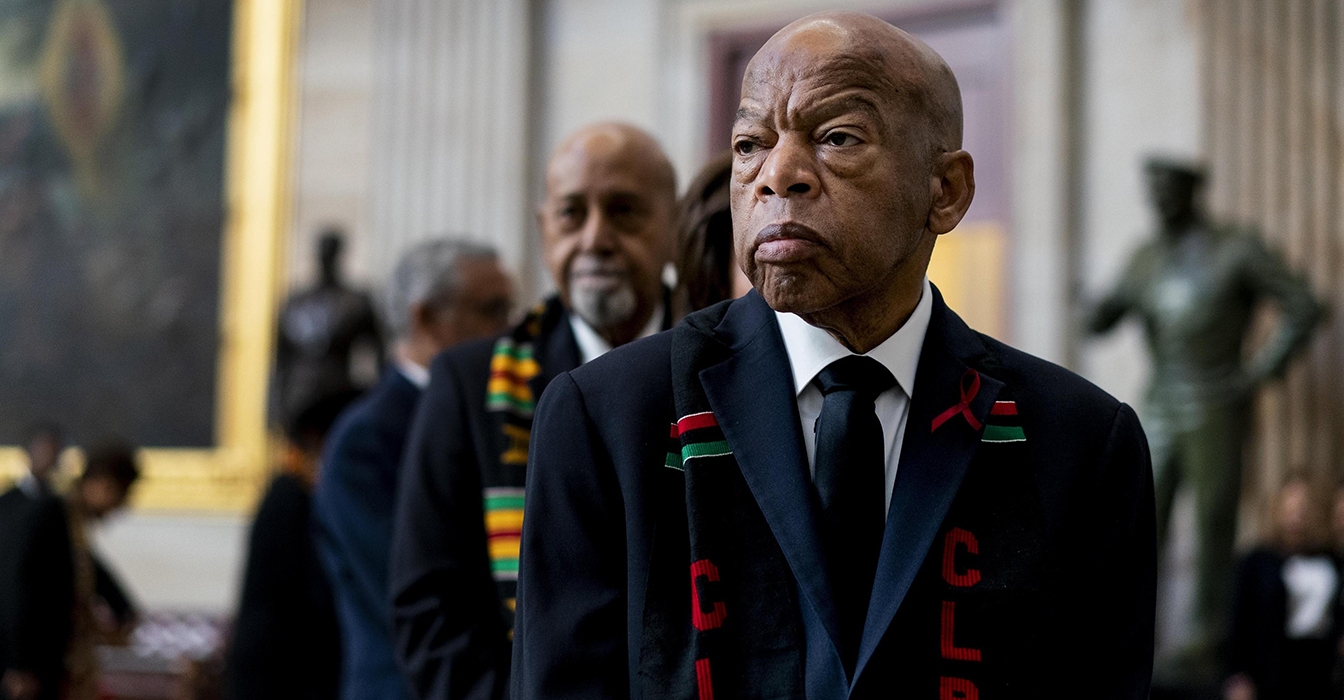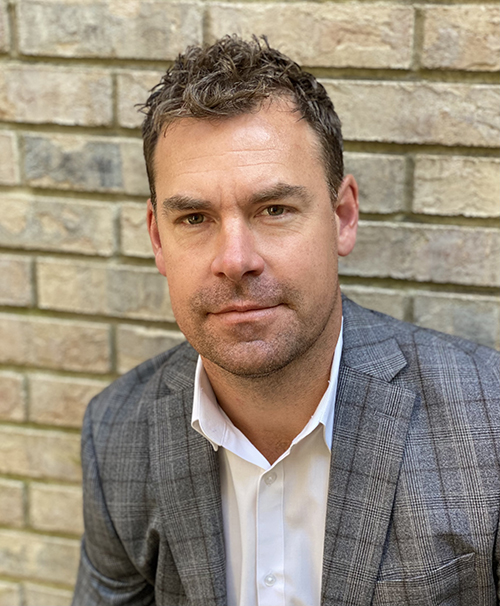An Urgent Legacy: Fisk Shows How HBCUs Can Help Law Firms Diversify
By Katrina Dewey | December 21, 2020 | News & Features, Cravath Features

Photo of John Lewis by UPI / Alamy Stock Photo.
He had stowed an apple and an orange in his backpack, alongside a toothbrush and toothpaste.
He’d been to jail before and knew the drill.
He’d also packed two books, “The Seven Storey Mountain,” about Catholic Monk Thomas Merton; and “The American Political Tradition,” by Richard Hofstadter.
“In times of change and danger when there is a quicksand of fear under man’s reasoning, a sense of continuity with generations gone before can stretch like a lifeline across the scary present,” wrote John dos Passos, to begin the latter book.
Up he walked, and over the bridge. There, John Lewis saw a sea of blue.
Selma, Alabama. March 7, 1965.
The world. 2020.
What’s goin’ on?
John Lewis was an ordained minister who graduated from American Baptist College and in 1961 enrolled in Fisk University, where he became a leader of the sit-in movements at lunch counters and movie theaters in Nashville, and as one of the original 13 Freedom Riders. He prematurely ended his studies at Fisk to take on leadership of the Student Nonviolent Coordinating Committee and was a leader of the Selma to Montgomery march.
He was beaten and his skull was fractured for marching over the Edmund Pettus Bridge. Those were among many scars he bore until the day he died earlier this year, inflicted for his nonviolent activism to achieve the right to vote and other civil rights protections.
“I was inspired to get in the way. For more than 50 years, I’ve been getting in the way. I’ve been getting in trouble – good trouble, necessary trouble,” Lewis said on a 2017 visit to Fisk, to which he returned to earn his degree after Selma.
Fisk University has launched many civil rights leaders since its founding in 1866, just months after the end of the Civil War. Named for Union General Clinton B. Fisk, its original home was in former military barracks near Nashville’s Union Station. It was founded by John Ogden, Edward Parmelee Smith and abolitionist Erastus Milo Cravath.
“Fisk was a site of the birth of a great movement,” Lewis said at Fisk the year he graduated.
And yet, in 2020, it remains a small – mighty if underappreciated – underendowed historical Black college and university. With 900 students and an endowment of $25M, it offers employers a direct pipeline to diverse students educated and empowered by the past whose eyes are on the future. Their future.
One might think Fisk and its fellow HBCUs would be overwhelmed with donors and supporters.
“I'll be fully honest with you, my goal for this place is and has always been that there is a unique opportunity to solve one of the largest national problems. And that is a socioeconomic question around minority presence, minority executive leadership, minority seats at the table. In a society driven by economics, that seems to me the most fruitful way to get there, through education,” says Dr. Jens Frederiksen, Fisk vice president of institutional advancement and strategic development.
And let’s be clear: There is a problem. Corporate America is not diverse, and few professions have failed more than the nation’s most elite big law firms, whose decades of good intentions have produced fewer Black partners than random chance would. Think of it this way: Fresh in our minds, the 2020 U.S. election showed profoundly the importance of everyone’s right to vote. And while Big Law is not a democracy, the pathway to gaining a vote – a seat at the table of law firm owners – remains profoundly disparate. Some could say unfair, certainly deeply flawed.
HBCUs produce 50 percent of the nation’s practicing Black lawyers and 80 percent of its Black judges, according to data compiled by the Thurgood Marshall College Fund. It doesn’t take a genius to know that if your car is out of gas, you go to a gas station. And if your car runs out of gas after filling the tank, you may need to have your car repaired.
Talk to me, so you can see
Oh what’s goin’ on ….
Cravath founder Paul Drennan Cravath spent his childhood years on the Fisk campus, where his father served as the first President of the University from 1875 to 1900. Paul Cravath served in leadership roles at Fisk for 45 years. To honor that legacy, Cravath in 2019 launched the Cravath Scholars program as part of its bicentennial commemoration. The program provides tuition assistance and a summer internship in Cravath’s New York office for two students per year, which is hoped to grow in number.
“We launched the Cravath Scholars program to honor our historic connection to Fisk and support its mission,” said Faiza J. Saeed, Cravath’s Presiding Partner. “Fisk has a remarkable legacy as one of our country’s great historically Black colleges and its students represent the promise of the future. ”

“I sometimes say, ‘I feel like we are the best kept secret,’ which of course you don't want to be in a competitive higher education space, but it truly is just the most underexposed gem,” says Frederiksen. He moved to Nashville 20 years ago to attend Vanderbilt University, and heard of Fisk because of its partnership with Vanderbilt. After teaching at Sewanee, he went to work for the Governor of Tennessee, traveling throughout the state assessing its diverse portfolio of business. When he got a call seven years ago asking if he’d be interested in teaching at Fisk, he said of course.
“If you're in education, you are obviously an idealist in some way, shape, or form,” says Frederiksen. “So I was acutely familiar with the caliber of students at Vanderbilt and at Sewanee. I came over here to Fisk and was just blown away by the caliber of students, the stories, their motivations, and just felt like this was a place that was so profoundly underexposed, and these young people were so inspirational.”
He has been in administration for going on five years, raising Fisk’s fundraising game from $4M annually to $11M today. And while that’s a big gain, it’s slightly heartbreaking compared to eight-figure gifts routinely given to Harvard and the nation’s other major universities. The focus on funding HBCUs is gaining momentum, with massive gifts to Howard, Xavier, Spelman and Morehouse, among others from Reed Hastings and his wife, Patti Quillin, and Mackenzie Bezos.
A companion to fundraising is an emphasis on raising student internships, which have increased from 20 percent to 41 percent of Fisk’s student body, thanks to Cravath; Google; Ingram Industries; and HCA Healthcare.
“We can all be enamored with the results of what HBCUs are producing with relatively – not even relatively – with comparatively minute means,” says Frederiksen, whose students come mostly from households making less than $40,000 per year. “But there is something far more robust and substantial that happen at HBCUs around students who are experiencing other students, echo chambers, climates that they feel empowered by, they can be themselves. It's not just about representation. What HBCUs, and particularly small private ones like ours do, is they give students a sense that the sky genuinely is the limit.”
The Cravath program is particularly meaningful because it invests in students years before they will become professionals. A fairly typical law firm approach to diversity is to have a consortium, to study the problem, to create a committee. “The fascination is always for people to tackle a problem at the apex,” he says. “But sometimes that's not where you're really going to tackle it. You're going to tackle it years ahead.”
He has watched countless companies befuddled when top graduates turn down their offers, which he sees as a systemic issue.
“I think what makes Cravath and the scholars program so unique in this capacity is that you're getting them away ahead of law school,” Frederiksen says.
He believes that early exposure to a firm like Cravath can be “life altering” and reflects the type of long-term commitment required to have lasting change in future decades.
And students are smart. They watch and learn. From what grownups do as much as what they say. Fisk used to have a large financial company that would come to campus and ask the university to pay for the lunch. It would hire the three seniors it liked best, and go away until the next year. These days, as other partners and companies show up, not many students are signing up for that company.
“Students understand who’s doing the right thing,” he says.
Mother, mother, everybody thinks we're wrong
Oh, but who are they to judge us
Simply 'cause our hair is long
Think of it this way. If there was a lunch counter who happily served a group of students who just walked in famished after a Black Lives Matter protest and another that nervously found a place in the corner, which restaurant do you think the students would go back to?
“A democracy cannot thrive where power remains unchecked and justice is reserved for a select few,” John Lewis said. “Ignoring these cries and failing to respond to this movement is simply not an option – for peace cannot exist where justice is not served."
About the author: Katrina Dewey (katrina@lawdragon.com) is the founder and CEO of Lawdragon, which she and her partners created as the new media company for the world’s lawyers. She has written about lawyers and legal affairs for 30 years, and is a noted legal editor, creator of numerous lawyer recognition guides and expert on lawyer branding. She is based in Venice, Calif., and New York. She is also the founder of Lawdragon Campus, which covers law students and law schools. View our staff page.

